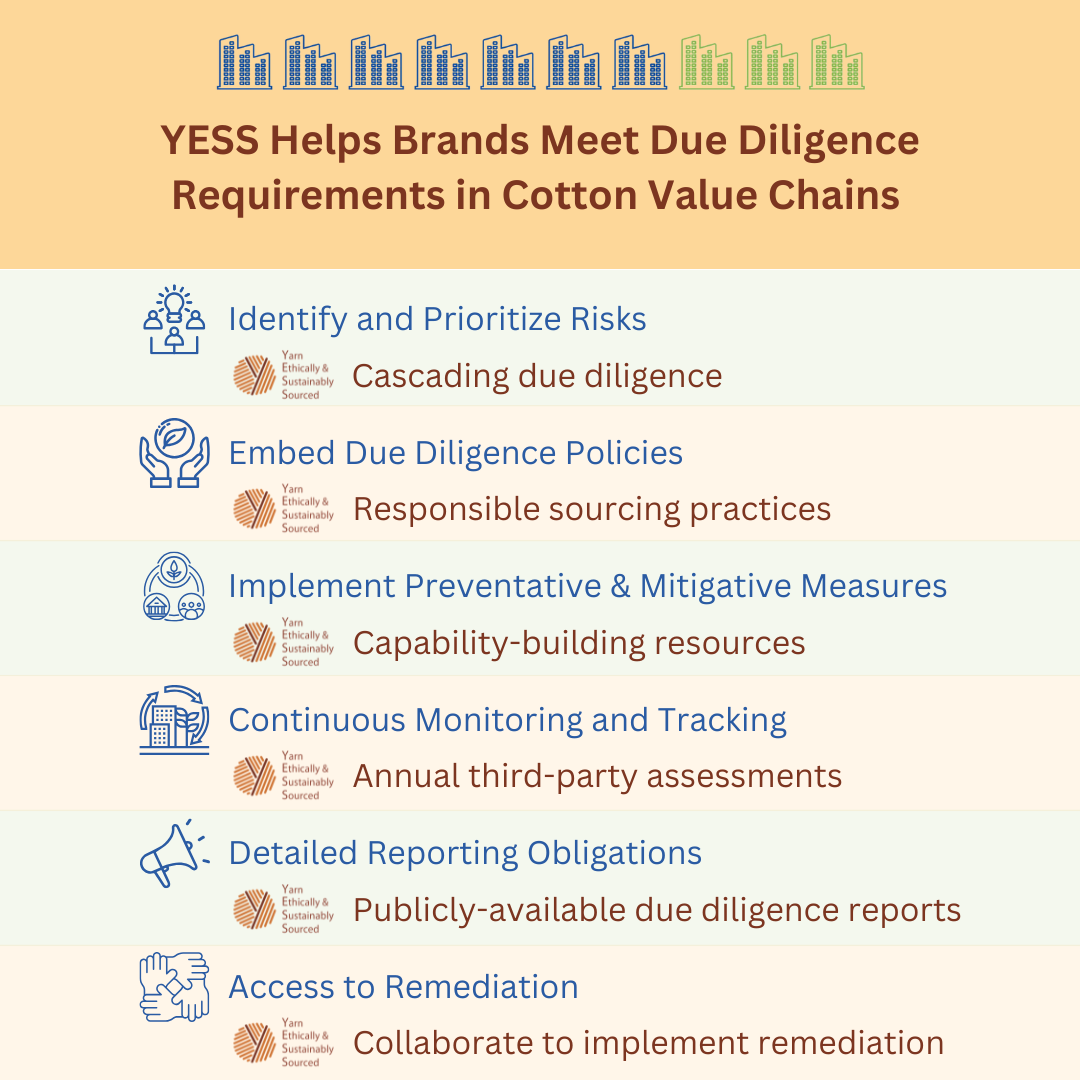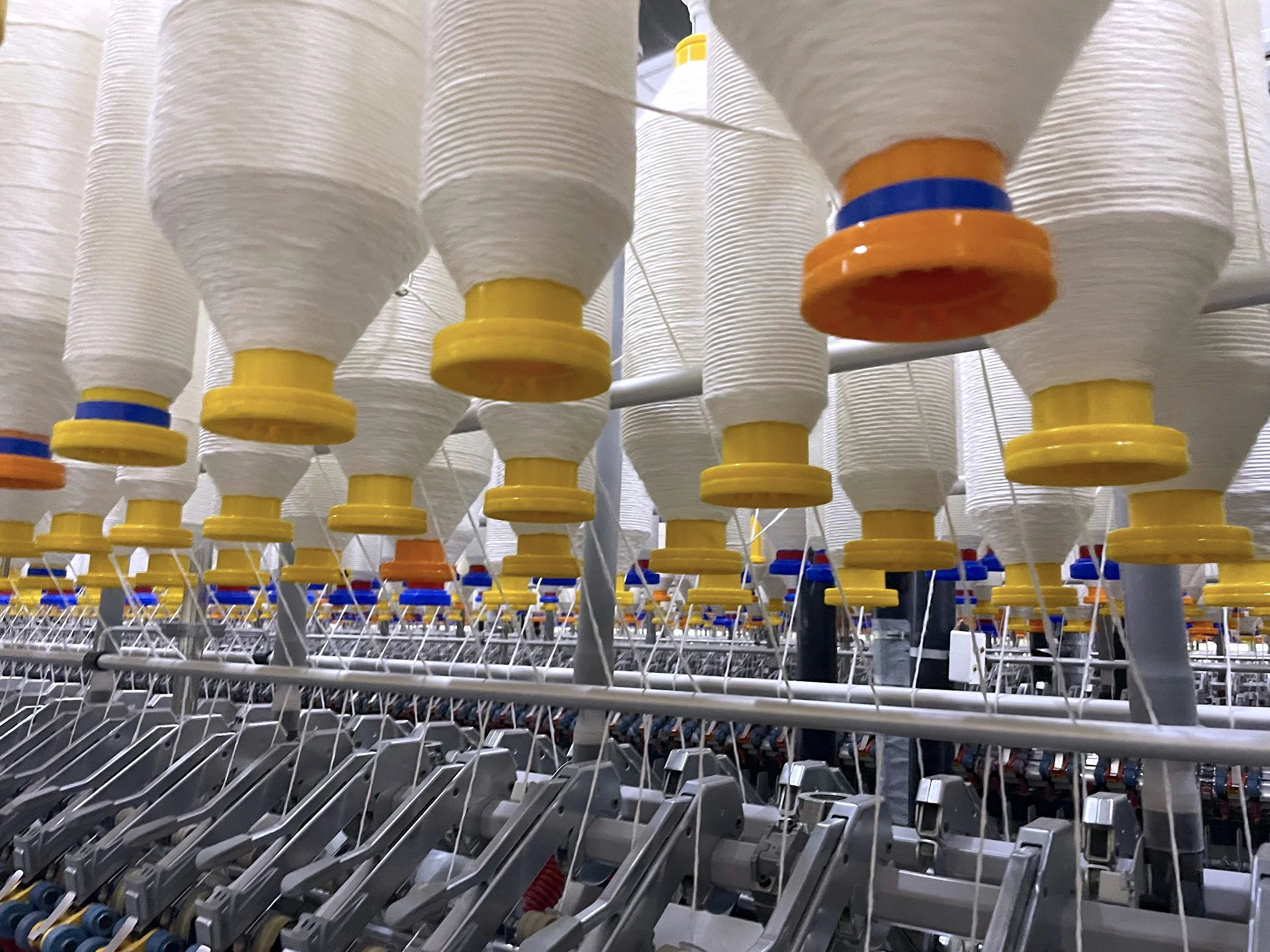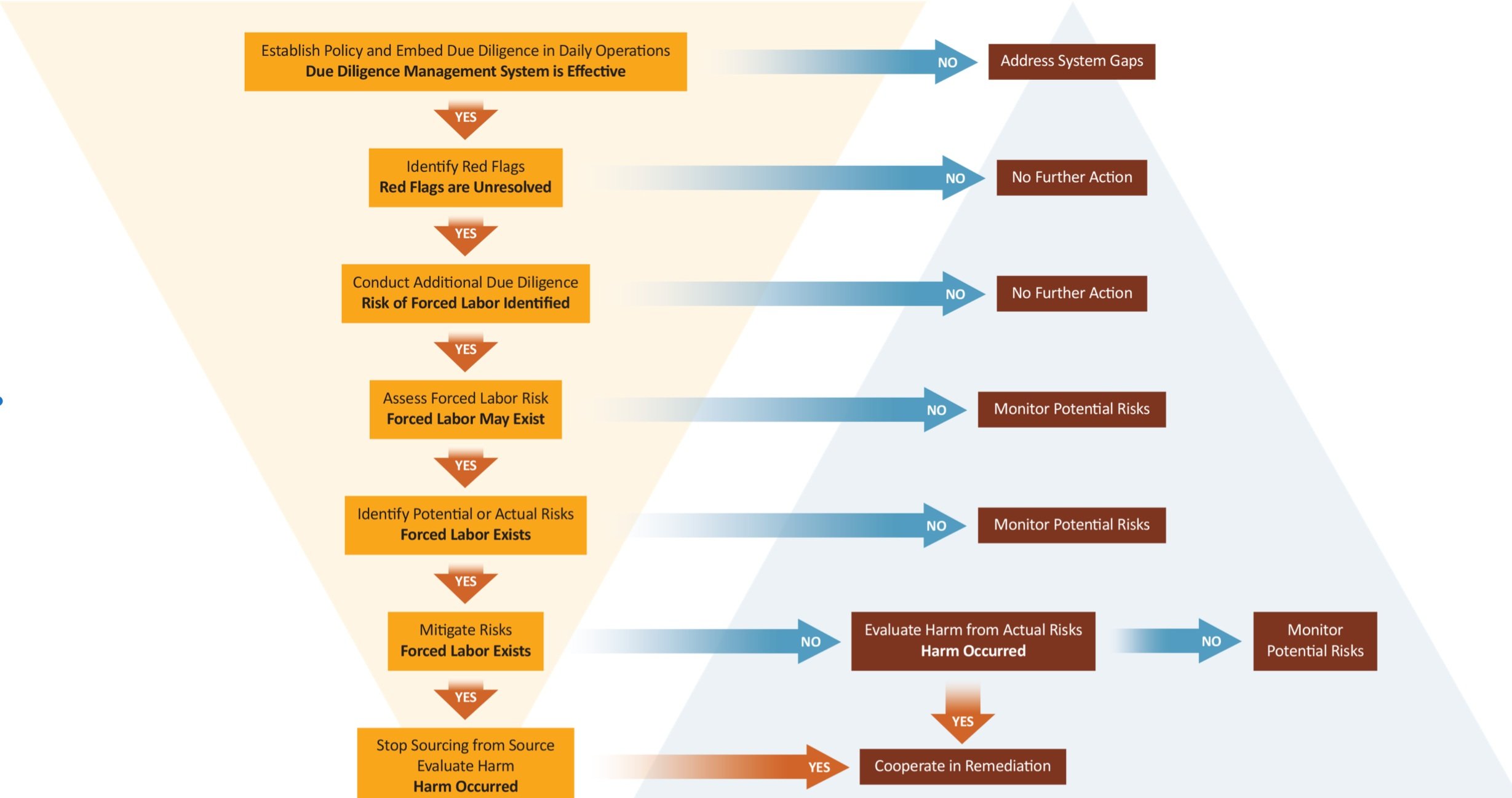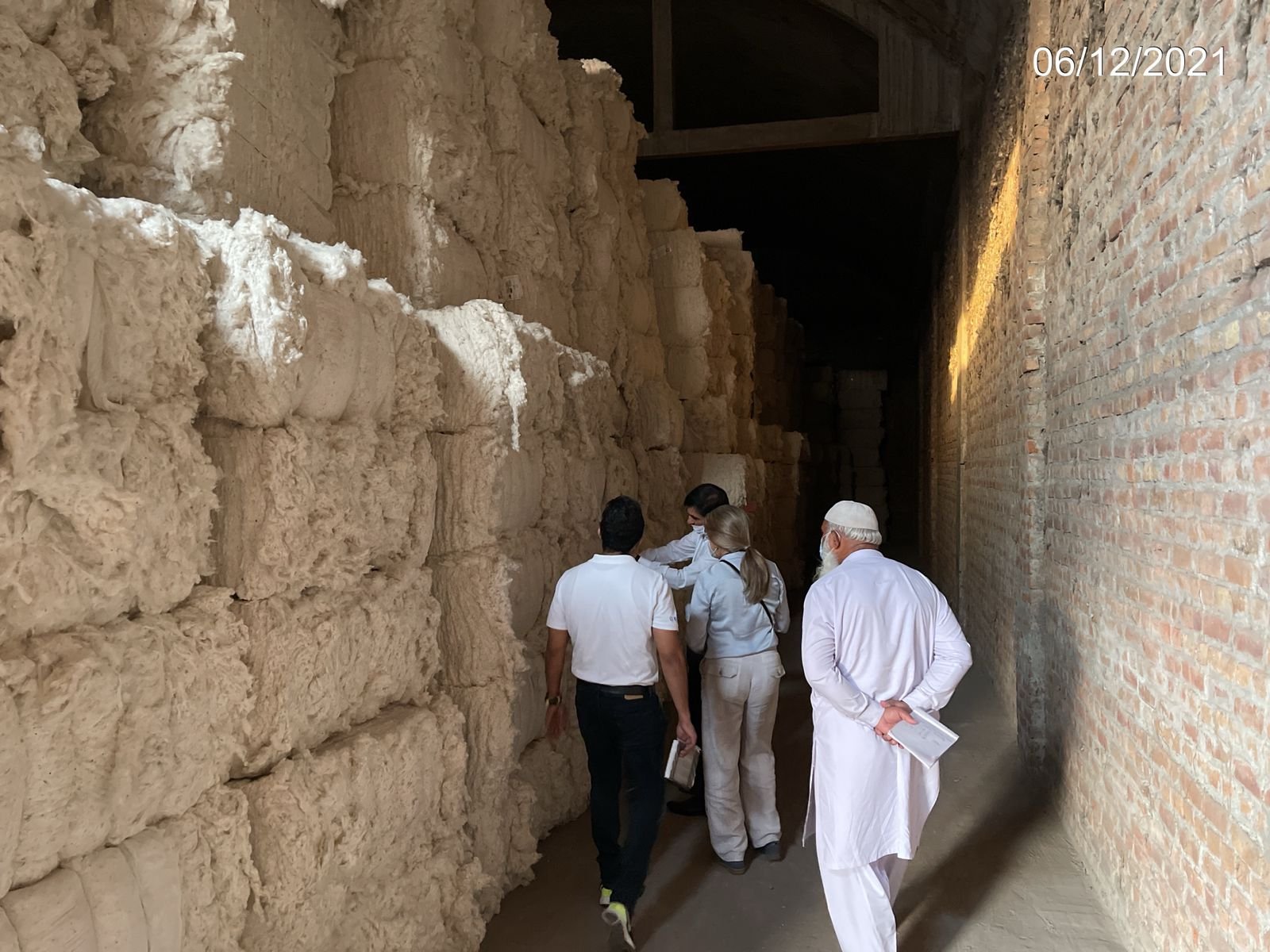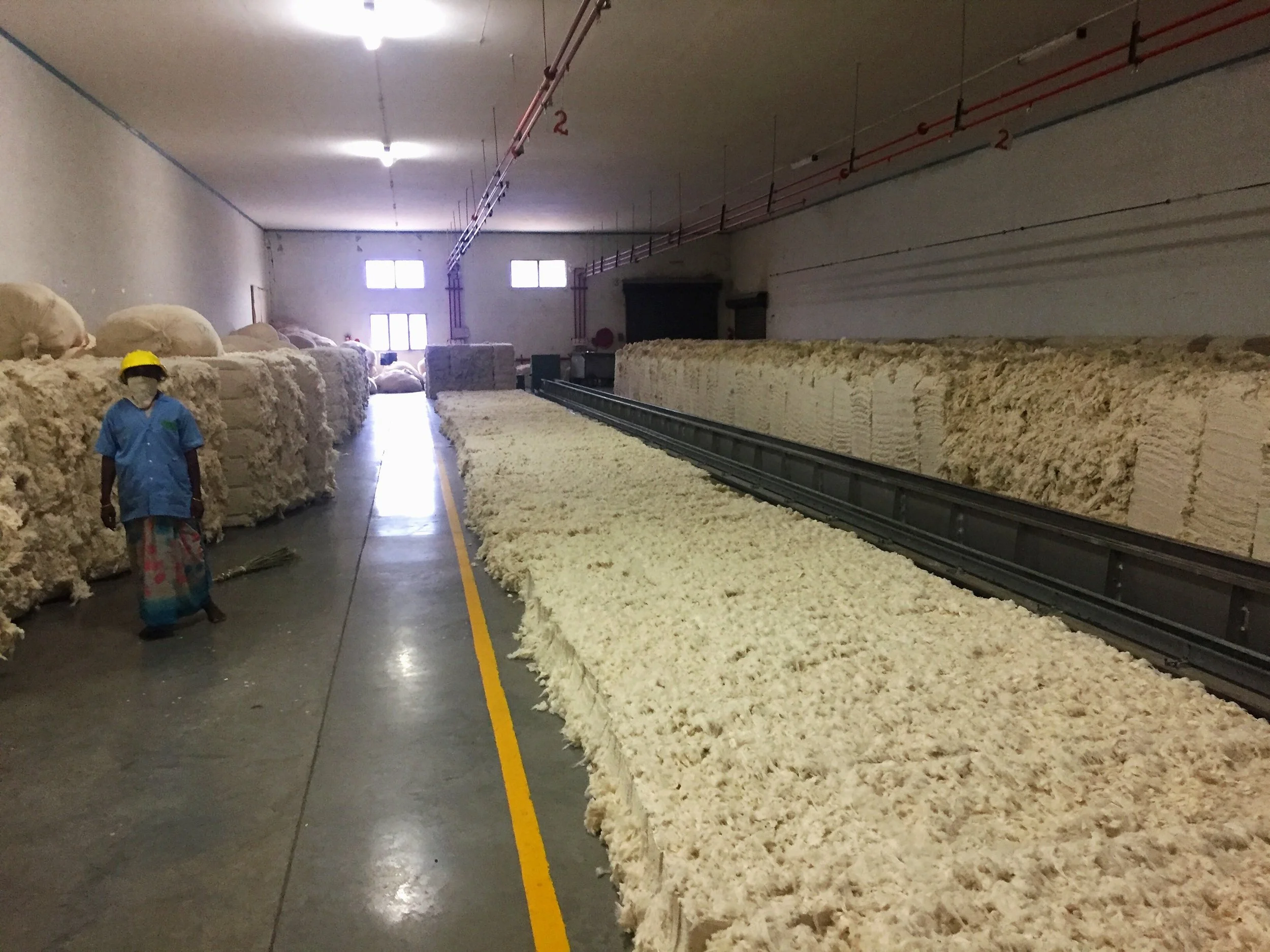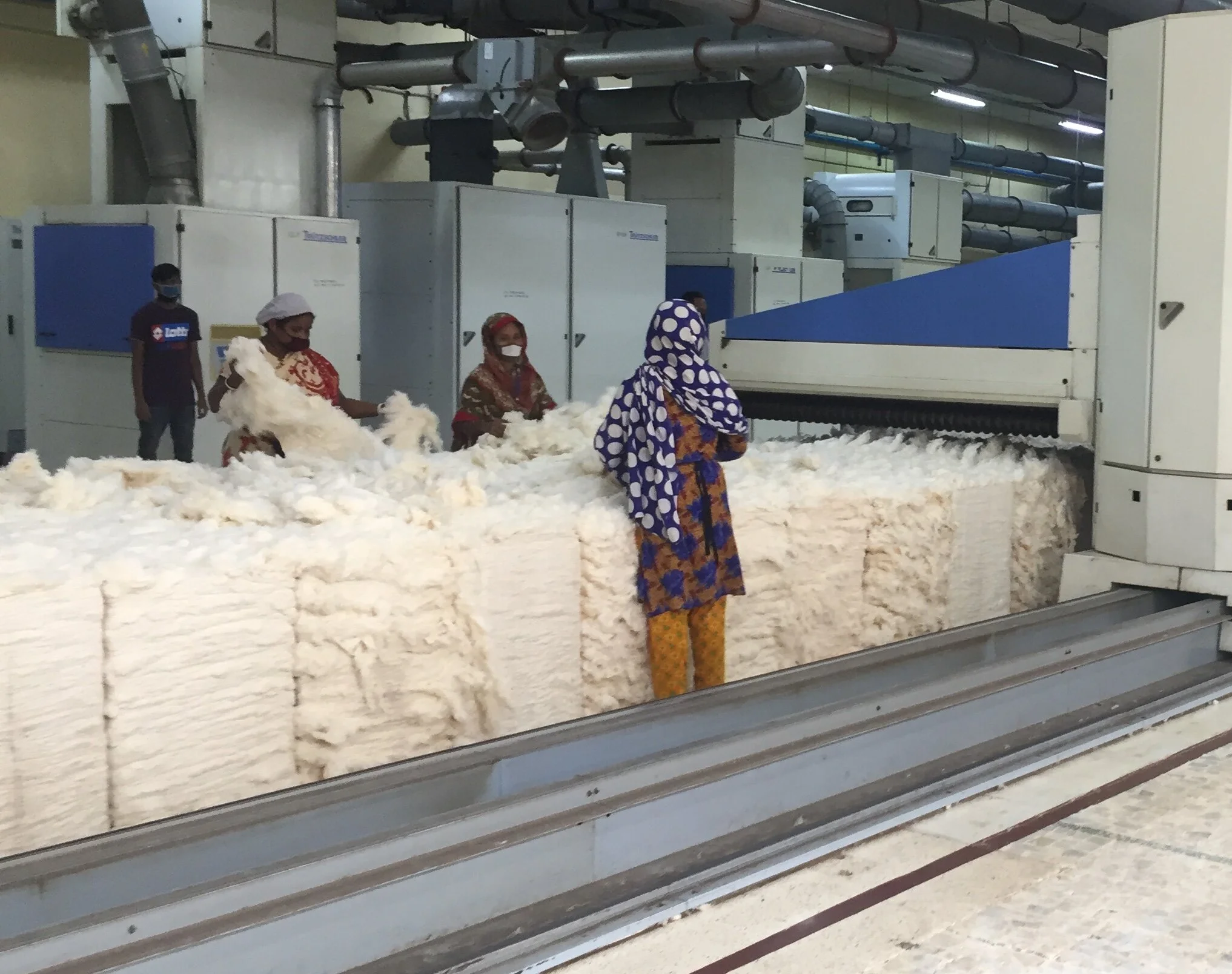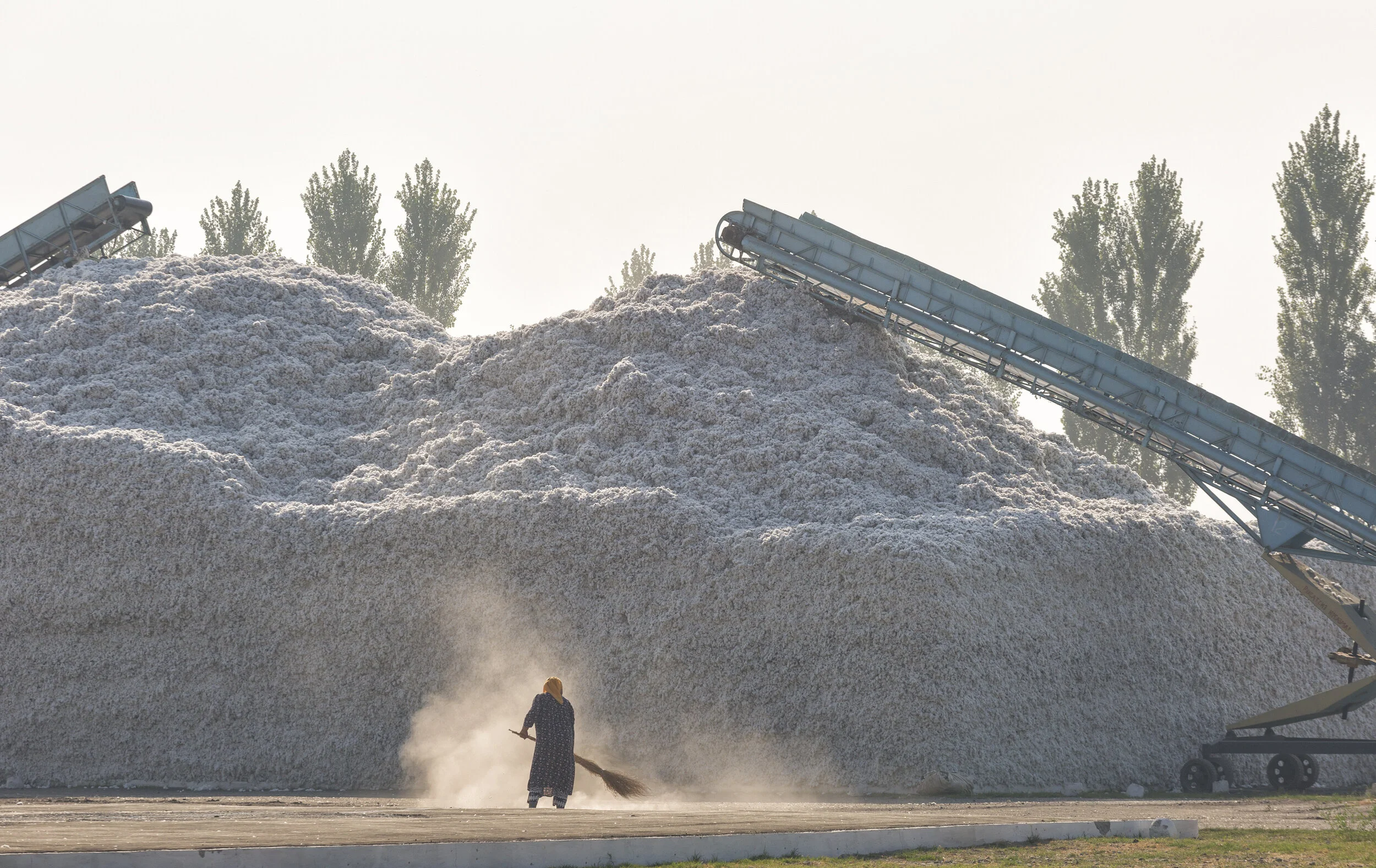On this International Human Rights Day, we want to celebrate the leap forward to protect human rights with the passing of the EU Corporate Sustainability Due Diligence Directive (CSDDD). Having mandatory human rights due diligence required of companies and throughout their value chains is a huge accomplishment, and we look forward to seeing the positive impact in sourcing countries.
Responsible Sourcing Network (RSN) is excited to announce the launch of its first cohort of multi-stakeholder members for YESS: Yarn Ethically & Sustainably Sourced. The first cohort of brand members includes industry leaders such as adidas, Fanatics Apparel, INDITEX, The Walt Disney Company, and Walmart Inc.
The CSDDD sets rigorous criteria for companies to conduct due diligence across their entire value chains. Businesses must actively manage human rights and environmental risks, including forced labor. The following key requirements under the CSDDD are directly addressed by YESS, ensuring due diligence conformance and responsible sourcing in the middle tiers of the value chain.
YESS has just published a publicly-available list of yarn and fabric suppliers that are participating in its due diligence initiative. RSN has ambitious plans to grow the list of YESS Participating Mills globally. To accomplish this, RSN has partnered with audit management company Sumerra.
As we approach the end of 2023, we want to take a moment to reflect on the journey we have been on together over the past year and provide a quick update on what we have in store in 2024.
Responsible Sourcing Network (RSN) is transitioning its due diligence initiative to a multi-stakeholder membership model.
YESS was officially launched in India in May at a workshop in Bengaluru and the first third-party assessments at Shahi Exports.
Two yarn spinning mills in Pakistan underwent independent assessments of the YESS: Yarn Ethically & Sustainably Sourced Standards.
An analysis of how the requirements of the YESS Standards align with the FLETF’s Guidance to Importers
These standards will assist in due diligence efforts to reduce and ultimately eliminate forced labor involved in cotton production.
12-year-old human rights program becomes an independent nonprofit to fight slave labor in value chains.
Implemented since January 1st, is the EU Conflict Minerals Regulation a game changer for conflict minerals compliance?
The study reviews current in-country projects, discusses their effectiveness, and offers recommendations.
As we celebrate United Nations Human Rights Day, we are proud to be helping improve the lives of all human beings that are abused, exploited, or forced to toil making products that we use every day.
Uzbekistan is a country in transition. Although the Uzbek government has made significant progress toward ending forced labor in the cotton sector, the risk remains high.
After six years of comparative year-on-year assessments of corporate due diligence under Section 1502 of the Dodd-Frank Act, Responsible Sourcing Network (RSN) will not publish a Mining the Disclosures 2020 report.
Today, World Day of Social Justice, is the perfect day to send out Responsible Sourcing Network’s 2020 Newsletter!
Over recent months there has been a growing awareness of the inhumane treatment China has inflicted upon the local Uighur (Uyghur) and Turkic minority Muslim populations in the Xinjiang province.
Turkmenistan has overwhelming examples of human rights violations with state-sponsored forced labor in its cotton production and there is concern this tainted cotton spreads to global markets through Turkey, one of Turkmenistan's largest global trading partners.
After a decade of engagement, the Uzbek government is starting to take steps to end the use of systemic forced labor in its cotton sector. Check out the Roadmap of Reforms for what needs to happen next.
RSN will release its Mining the Disclosures (MtD) 2019 report near the end of October, which will continue to provide an inside look at how companies are addressing abuses that impact Congolese children and adults.
For the fourth time in eight years, the House of Representatives introduced the Business Supply Chain Transparency on Trafficking and Slavery Act, or H.R.7089.
This month is national slavery & human trafficking prevention month, so it’s a great time to update you on Responsible Sourcing Network’s (RSN’s) activities.
Patricia and I learned a lot during the Feasibility Assessment. Here are just a few highlights, which I will go into more detail on below
In 2010, Section 1502 of the Dodd-Frank Act spurred action across industries for more transparency in supply chains containing tin, tungsten, tantalum, and gold (commonly referred as 3TG).
In 2011, RSN released its first iteration of the Uzbek Cotton Pledge, asking brands to sign and commit to not sourcing cotton produced with forced child labor for the manufacturing of any of their products. Today more than 280 brands and retailers have signed the pledge.
Last month, Uzbekistan departed from the company of North Korea, South Sudan, and Turkmenistan in their human trafficking rankings when the U.S. Department of State released its 2018 Trafficking in Persons Report (TIP), which provides a tool for foreign governments to address modern slavery.




